- Home
- Alexandra Ivy
Don't Look Page 3
Don't Look Read online
Page 3
She finished the tuna fish and reached for the water to wash it down. She had a healthy appetite after her morning in the cold.
“Including making sandwiches?”
He chuckled. “It’s my specialty.”
“They’re delicious,” she assured him, turning so she could directly face him. “If you are as good at all the other services that you offer, I can understand why you’re such a success.”
“It was a combination of hard work and luck that paid off.”
“Your father was very proud of you.”
He flinched, almost as if he’d taken a physical blow. “I wish . . .”
“What?”
“That I’d come back more often.” He abruptly shoved back his empty plate, his expression grim. “There always seemed to be some catastrophe that demanded my immediate attention while I was building my business. And to be honest, my dad got put at the bottom of the list.” He shook his head. “I thought there would be more time. Now—”
His words were cut short as the front buzzer once again sounded. A rare annoyance stabbed through Lynne at the unwelcome interruption. Since her father had retired two years ago, she’d grown accustomed to being on call 24/7. It’d never bothered her. Not until this moment. Suddenly she wanted to yell at the person interrupting her lunch that she deserved a few minutes of peace.
Instead she forced herself to her feet. “Sorry, I need to see if this is an emergency.”
He nodded as she turned to hurry from the room. A moment later, Lynne was pulling open the front door. “Parker,” she muttered in surprise, her gaze taking in the local news anchor, who was shivering on the porch.
He was a few inches taller than her, which made him short for a man, with dark hair that she’d heard he drove all the way to Green Bay to have trimmed. His features were exactly what you would expect for a television personality. High, perfectly chiseled cheekbones with a strong jaw, a bold nose, and piercing gray eyes. Most people thought he was handsome, but Lynne was turned off by the perpetual tan and super-white teeth that didn’t look quite real. Still, she had to admit that he had a polished charm that made him a welcome addition to Pike.
Plus, he was a fellow animal lover.
“Hello, Lynne,” he said, flashing his white teeth.
Lynne glanced toward the nearby van with the local station’s call letters painted on the side. “Is something wrong with Norman?” she asked, referring to the rescue dog that Parker had recently adopted.
“No, no. He’s fine,” he assured her. “Fat and happy.”
“Good.” She started to inch the door shut. The sun was shining, but it only made things worse. The air was cold enough to make her fingers go numb. “I’m closed for lunch. Is there something you need?”
He stepped forward, as if he was preparing to stick his foot in the threshold to keep her from slamming the door in his face.
No doubt that happened a lot in his line of work.
“I have a few questions.”
“Questions about what?”
“Can we talk inside?” The practiced smile widened. “It will only take a couple minutes.”
“Is this for your ‘Pets’ Corner’ segment?” Lynne inquired as she reluctantly stepped back to let the man into the reception room.
As much as she wanted to run him off and continue her lunch with Kir, she was in Parker’s debt. He’d been the only one who was willing to listen to her idea of featuring a rescue animal on the evening news. More than that, he’d pressured the owner of the station to give it a try.
Thankfully, the spotlight had not only helped the local sanctuary, but it’d been so popular with the public that they added an extra ten minutes on Friday nights for Lynne to discuss the proper care and training of pets, as well as promoting one of the animals in need of a home each week.
“Unfortunately, no.”
Lynne frowned. “What’s going on?”
“You didn’t catch my special report this morning?”
It took a second for her to recall the news alert she’d heard before leaving her house. “Oh, right. The body that was found.”
He heaved a dramatic sigh. “Yes. Poor woman.”
“Do they have an identity yet?”
“They haven’t made an official announcement, but I have an inside source who told me it’s Sherry Higgins.”
Lynne jerked in surprise. She hadn’t considered the possibility that the dead woman might be from Pike. “The lady who owns the trailer park?”
“That’s her.”
Lynne didn’t know Sherry very well. The woman had kept to herself most of the time, but it was still disturbing to think that she was dead. And that someone might have deliberately hurt her. “How awful.”
“Tragic.” Parker’s voice held a smooth compassion that Lynne assumed he practiced. It was the same tone he used to reveal there had been a fire at the local lumberyard, or that there were budget cuts to the school. “According to my sources, Sherry was found with her naked body posed in the snow and her throat slit. The only thing the killer left was a crimson ribbon tied around her neck.”
Lynne lifted her hand to touch her neck. It was an instinctive reaction to the horrifying thought of what Sherry must have suffered. “Do they know who’s responsible?”
“The sheriff isn’t offering any information.” Parker leaned toward her, as if sharing a secret. “But my initial investigation has revealed that Ms. Higgins wasn’t a very nice person. She regularly had families evicted from their homes, she charged outrageous fees for basic services, and she was caught peeking through the windows of her tenants. I would guess there’s going to be an overabundance of suspects.”
Lynne tried to hide her disapproval. She never listened to gossip. It was rarely accurate and always destructive.
“People don’t kill someone for evicting them,” she protested.
Parker snorted. “I’ve known people who will kill someone for spilling their coffee.” He paused, as if considering the murder. “Of course, it’s one thing to strike out in the heat of anger, and quite another to kill someone, strip off their clothes, and arrange the body in the snow like some sort of pagan offering.”
A shudder raced through Lynne. It was disturbing to think such evil could touch her town. “I don’t know her family. Are they in the area?”
“Her parents are dead. She had a live-in boyfriend.” Parker pulled his hand out of the pocket of his long, black coat to glance at his phone. “Wes Klein,” he continued, obviously glancing through the notes he’d already gathered on Sherry Higgins. “She called the sheriff two weeks ago to have him forcibly removed from her trailer.”
Lynne took a step back. She felt sorry for the dead woman, but she didn’t have time to waste chitchatting. In less than a quarter of an hour her staff would be returning along with the afternoon rush and her brief time alone with Kir would be over. She didn’t know why the thought bothered her, but it did.
“It’s sad,” she assured Parker. “But I’m not sure why you’re here.”
Parker glanced around the empty office, as if making sure they were alone. “My source says that when they searched the back office at the trailer park, they found a silver dart that looks like it came from a tranq gun.” He deliberately paused. “The sort used by vets on large animals.”
She studied him in confusion. “Why would there be a dart there?”
“The sheriff assumes she was knocked out so she could be taken without a struggle and killed somewhere more private.”
Lynne stiffened. Was Parker sniffing around her clinic because he thought she was somehow involved in the murder? “What does that have to do with me?” she asked point-blank. She wasn’t a subtle sort of woman.
“I need an expert on how a person could go about getting their hands on the drugs you use and how they would affect a person who was injected with them.”
She was only partially mollified by the smooth explanation. “No.”
“It can be off the
record,” he wheedled. “Just some background information that would help my audience understand—”
“No.” Her tone was sharper.
Not surprisingly, Parker wasn’t deterred. He was a journalist. They didn’t allow rejection to stop them from getting what they wanted. But even as his lips parted, there was the sound of a male voice speaking from behind Lynne.
“I believe she told you no.”
The newscaster twitched, clearly caught off guard at the realization they weren’t alone. Then, with a practiced ease, he turned to flash his toothy smile. “I’m sorry, I didn’t know Lynne had a patient.” He held out his hand. “Parker Bowen.”
Kir strolled forward, his face oddly pale as he shook the man’s hand. “Kir Jansen.”
“Jansen?” Parker paused, as if testing the name. Then he snapped his fingers. “Any relation to Rudolf Jansen?”
It was Kir’s turn to look surprised. “You knew my father?”
“No, but I did read his obituary in the paper. I’m sorry for your loss.”
“Thank you.”
Parker tucked his phone back in his pocket, his expression distracted as if he was already thinking of his next task. Perhaps finding another vet who would give him the background information he wanted. Turning, he walked toward the door.
“Call me if you change your mind about helping with the investigation,” he told Lynne. “That dart had to come from somewhere.”
Chapter 3
Kir was shaken.
Bone-deep, to-the-soul shaken.
He hadn’t meant to eavesdrop, but the door was open, and the voices easily carried as the unknown man had talked about some woman being found dead and posed naked in a field. At first he’d been vaguely horrified. Murder was rare in such a small town. Still, the majority of his attention had been focused on how long it was going to take to get rid of the intruder. He’d been thoroughly enjoying spending time with Lynne and was anxious for her to return to their lunch.
Then the man had mentioned the crimson ribbon, and the words he’d dismissed for years whispered through his mind.
Crimson blood stains the pure white snow. Life spills from warm to frozen. Don’t look. The pain is gone.
Those were the words at the end of each letter his father had received from his mysterious pen pal. The letters Rudolf had been convinced came from a serial killer, and Kir had been convinced were the work of some nutjob.
What actual killer would write to a sheriff, even if he was retired, Kir had argued when his father would call to say another letter had arrived at his house. And where were the bodies? You couldn’t be a serial killer if you weren’t actually murdering people.
Kir told his dad it was far more likely that someone was playing a cruel game. Or perhaps it was someone sick in the head who imagined he was a killer. Stuff like that happened all the time.
“Kir.” A slender hand touched his arm. “Kir. Is something wrong?”
“Crimson blood stains the pure white snow,” he murmured, still lost in his escalating fear.
“What?”
He shook his head, focusing on the woman who was regarding him with a worried expression. “The letters.”
“I’m sorry, I don’t understand what you’re talking about.”
He waved an impatient hand toward the front door. “The guy who was just here.”
“Parker Bowen? He’s the local newscaster.”
Kir grimaced. He’d barely spent two minutes in Bowen’s company and he already didn’t like him. He had a slick charm that usually hid a devious personality. But that wasn’t what was causing his racing pulse. “He said they found the body naked except for a crimson ribbon around her neck,” he said.
Her lips slowly parted. “You didn’t know poor Sherry, did you?”
“No.” With jerky movements, Kir returned to Lynne’s office to grab his leather jacket. “I need to go look for those letters.”
“Letters?”
“I’m sure my dad didn’t throw them away,” he muttered. “They have to be in the house somewhere.”
“Wait.” Lynne appeared beside him. “Are you leaving now?”
Kir swallowed a sigh. He’d spent last night and most of this morning anticipating his lunch with Lynne. It’d been the only way he could bear the grim task of packing up his father’s belongings. And if he was honest, he was eager to spend some time discussing the past with someone who had shared it with him. Lynne might not have been his best friend growing up, but they’d gone to the same school and enjoyed the same local hangouts.
He’d devoted so much effort to blocking out the broken man his father had become that he’d forgotten there had been good times in this town. He needed to make sure that they were the memories he took back to Boston.
“I’m sorry, I know we didn’t get to finish our lunch,” he said, his regret genuine.
“Don’t worry about it.” She stepped toward her nearby desk, which was nearly buried beneath stacks of files. “Obviously you’re upset. I’ll drive you home.”
“There’s no need.”
She glanced back at him, her expression still worried. No doubt she was thinking that his father’s sudden death was making him a lunatic. And maybe he was.
“Kir.”
“I’m fine,” he assured her as he walked toward the door, pausing to glance back at his companion. “Make sure the doors are locked while you’re here alone.”
She thankfully didn’t look at him as if he’d lost his mind. She simply nodded her head. “I always do.”
Kir lingered, oddly reluctant to leave. Then, clenching his teeth, he forced himself to turn and walk out of the clinic. As much as wanted to spend a few hours in Lynne’s company, he couldn’t shake his sense of foreboding.
It was almost as if his father was whispering in his ear, warning him that danger was stalking the women of Pike.
Two hours later, he had just finished boxing up the papers from his father’s file cabinets when there was a knock on the door. He froze. Did he answer it? Or did he pretend he wasn’t there?
He wasn’t in the mood for the condolences of a well-meaning neighbor, or more likely, the intrusive demands of the real estate agent he’d hired. In fact, all he wanted to do was find the damn letters and set his mind at ease that they had nothing to do with the dead woman.
Unfortunately, whoever was outside was determined to get in. They pressed their finger to the ringer, refusing to let it stop until he’d stomped through the house to yank open the door.
The angry words that trembled on his lips died as he realized it was Lynne standing on the porch.
“What are you doing here?” he demanded in surprise.
She was bundled from head to toe in winter gear, but she still looked cold. “I thought you could use some company.”
Kir hurriedly stepped back, allowing her to enter the living room so he could close the door. “What about your patients? Or whatever they’re called.”
She kicked off her boots on the small mat before moving toward the center of the living room. It wasn’t a large room, but it felt empty. Maybe because the walls were bare, and the only furniture was a worn recliner and an old television on a rickety stand in a far corner. Or maybe it was because his father wasn’t there.
“The animals are my patients, and the owners are my clients.” She pulled off her stocking cap and coat, laying them on the worn brown carpet before sending him a smile. “But I usually call them friends and family. That’s who they are to me. Especially the animals.”
His heart lurched. Why hadn’t he ever noticed her smile? It was captivating.
He stepped toward her. “You always did have a preference for four-legged creatures.”
“They’re a lot easier to understand.”
“True.” His lips twisted as he considered his years of dealing with angry customers. It’d made him appreciate the thought of retiring one day with a loyal dog and a cabin in the middle of nowhere. “So shouldn’t you be taking care of
your furry friends?”
She shrugged. “I’m finished with the surgery I had scheduled, and my interns can deal with the routine cases. If an emergency comes in, they’ll call.”
“I know I ran out of your clinic like a madman, but I really am okay. You don’t have to keep an eye on me.”
He used a light tone, trying to hide his abrupt realization that he was glad she was there. He hadn’t been aware of how many ghosts haunted this house. Not until she stepped through the door and battled them back with her smile.
“It wasn’t just concern for you that brought me here,” she said.
“No?”
“After you left, I finally realized what you were talking about.”
His lips twisted into a wry smile. “It was more a babble than actual talking,” he conceded. “I was a little distracted.”
“I get it.” She held his gaze. “When Parker mentioned that a dead woman had been found, you were afraid it might have something to do with the letters your father had been getting, weren’t you?”
Kir made a sound of surprise. It wasn’t what he’d been expecting. “You know about them?”
She hesitated, considering her words before she spoke. “Your father called me a couple months ago.”
“Was that unusual?”
“Yes. I tried to stop by and visit when I had the time, but after Butch died, I didn’t come here as often as I should have,” she admitted, referring to Rudolf ’s beloved hound dog. “We drifted apart over the past year.”
Pain sliced through Kir. How many times had he told himself that he needed to call his father? And how many times had he told himself that he would do it later? A shrink would no doubt call it “avoidance.” He called it being a shitty son. “What did he want?”
“He said he’d gotten a letter.”
“Why would he involve you?”

 Hakan/Severin
Hakan/Severin A Very Levet Christmas
A Very Levet Christmas Scorched by Darkness
Scorched by Darkness Out of Control
Out of Control My Lord Vampire
My Lord Vampire When Darkness Comes
When Darkness Comes Abandoned and Unseen
Abandoned and Unseen Ice/Reaux
Ice/Reaux Kill Without Shame
Kill Without Shame Sebastian/Aristide
Sebastian/Aristide Bound By Darkness
Bound By Darkness Angel/Hiss
Angel/Hiss Lian/Roch
Lian/Roch Kill Without Mercy
Kill Without Mercy First Rapture
First Rapture Burned by Darkness
Burned by Darkness Two to Go: Bayou Heat
Two to Go: Bayou Heat Predatory
Predatory The Real Werewives of Vampire County
The Real Werewives of Vampire County Darkness Eternal
Darkness Eternal Darkness Everlasting
Darkness Everlasting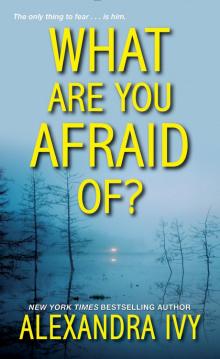 What Are You Afraid Of?
What Are You Afraid Of? Born in Blood
Born in Blood Darkness Revealed
Darkness Revealed Darkness Avenged
Darkness Avenged Buried and Shadowed
Buried and Shadowed Blade
Blade Pretend You're Safe
Pretend You're Safe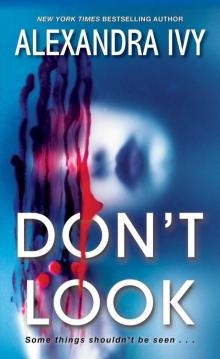 Don't Look
Don't Look Bayon/Jean-Baptiste
Bayon/Jean-Baptiste Where Darkness Lives
Where Darkness Lives My Lord Eternity
My Lord Eternity My Lord Immortality
My Lord Immortality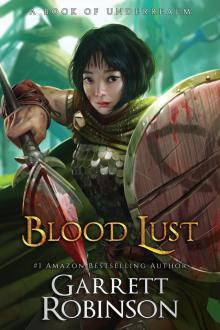 Blood Lust
Blood Lust Bayou Noël
Bayou Noël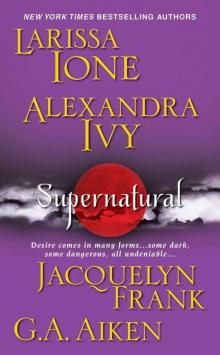 Supernatural
Supernatural Hunt the Darkness
Hunt the Darkness Blood Assassin
Blood Assassin One Down
One Down Shades of Darkness
Shades of Darkness Kayden/Simon
Kayden/Simon Sinful Rapture
Sinful Rapture Charred by Darkness
Charred by Darkness Faceless
Faceless Beware the Darkness
Beware the Darkness Sacrifice of Darkness: A Guardians of Eternity Novella
Sacrifice of Darkness: A Guardians of Eternity Novella You Will Suffer
You Will Suffer Talon/Xavier
Talon/Xavier Michel/Striker
Michel/Striker Conquer the Darkness
Conquer the Darkness Darkness Returns
Darkness Returns All About Levet
All About Levet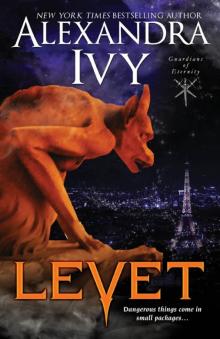 Levet
Levet Raphael: Bayou Bites (Bayou Heat Book 1)
Raphael: Bayou Bites (Bayou Heat Book 1) Seducing the Viscount
Seducing the Viscount Bedding The Baron
Bedding The Baron On the Hunt
On the Hunt When You Wish
When You Wish Lord Mumford's Minx
Lord Mumford's Minx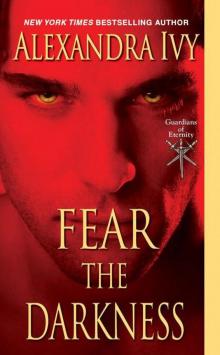 Fear the Darkness (Guardians of Eternity)
Fear the Darkness (Guardians of Eternity) Bayou Heat Collection One
Bayou Heat Collection One Yours for Eternity
Yours for Eternity Lord Carlton’s Courtship
Lord Carlton’s Courtship Sinful Rapture (The Rapture Series)
Sinful Rapture (The Rapture Series) Darkness Unleashed
Darkness Unleashed 1001 Dark Nights: Bundle Twelve
1001 Dark Nights: Bundle Twelve The Wedding Clause
The Wedding Clause A Vampire Bundle
A Vampire Bundle Born in Blood (The Sentinels)
Born in Blood (The Sentinels) Rage/Killian
Rage/Killian Hakan/Séverin
Hakan/Séverin Bayon Jean-Baptiste
Bayon Jean-Baptiste Love and Marriage
Love and Marriage Pretend You’re Safe
Pretend You’re Safe GOE 08 - Bound By Darkness
GOE 08 - Bound By Darkness Dragons of Eternity Collection
Dragons of Eternity Collection Stolen and Forgiven
Stolen and Forgiven Scorched by Darkness (Dragons of Eternity Book 2)
Scorched by Darkness (Dragons of Eternity Book 2) One Down: Bayou Heat (Pantera Security League Book 1)
One Down: Bayou Heat (Pantera Security League Book 1) A SENTINEL LOVE STORY
A SENTINEL LOVE STORY Ice Reaux
Ice Reaux Here Comes the Bride
Here Comes the Bride Bayou Heat Collection Two
Bayou Heat Collection Two When Darkness Ends
When Darkness Ends A Vampire Bundle: The Real Werewives of Vampire County, When Darkness Comes, Real Vamps Don't Drink O-Neg, & Hunted by the Others
A Vampire Bundle: The Real Werewives of Vampire County, When Darkness Comes, Real Vamps Don't Drink O-Neg, & Hunted by the Others My Lord Eternity (Immortal Rogues)
My Lord Eternity (Immortal Rogues) One Down_Bayou Heat
One Down_Bayou Heat Miss Frazer's Adventure
Miss Frazer's Adventure Charred By Darkness (Dragons of Eternity Book 3)
Charred By Darkness (Dragons of Eternity Book 3) Embrace the Darkness
Embrace the Darkness Guardians of Eternity 03 - Darkness Everlasting
Guardians of Eternity 03 - Darkness Everlasting Two To Go
Two To Go Blade_A Bayou Heat Novella
Blade_A Bayou Heat Novella Kayden/Simon (Bayou Heat Novellas)
Kayden/Simon (Bayou Heat Novellas) Beyond the Darkness
Beyond the Darkness Raphael Parish
Raphael Parish Lian/Roch (Bayou Heat)
Lian/Roch (Bayou Heat) When Darkness Falls
When Darkness Falls Taken by Darkness
Taken by Darkness Rage/Killian: Bayou Heat Novellas (1001 Dark Nights Book 5)
Rage/Killian: Bayou Heat Novellas (1001 Dark Nights Book 5) Devoured By Darkness
Devoured By Darkness A Very Levet Christmas (Guardians of Eternity)
A Very Levet Christmas (Guardians of Eternity)